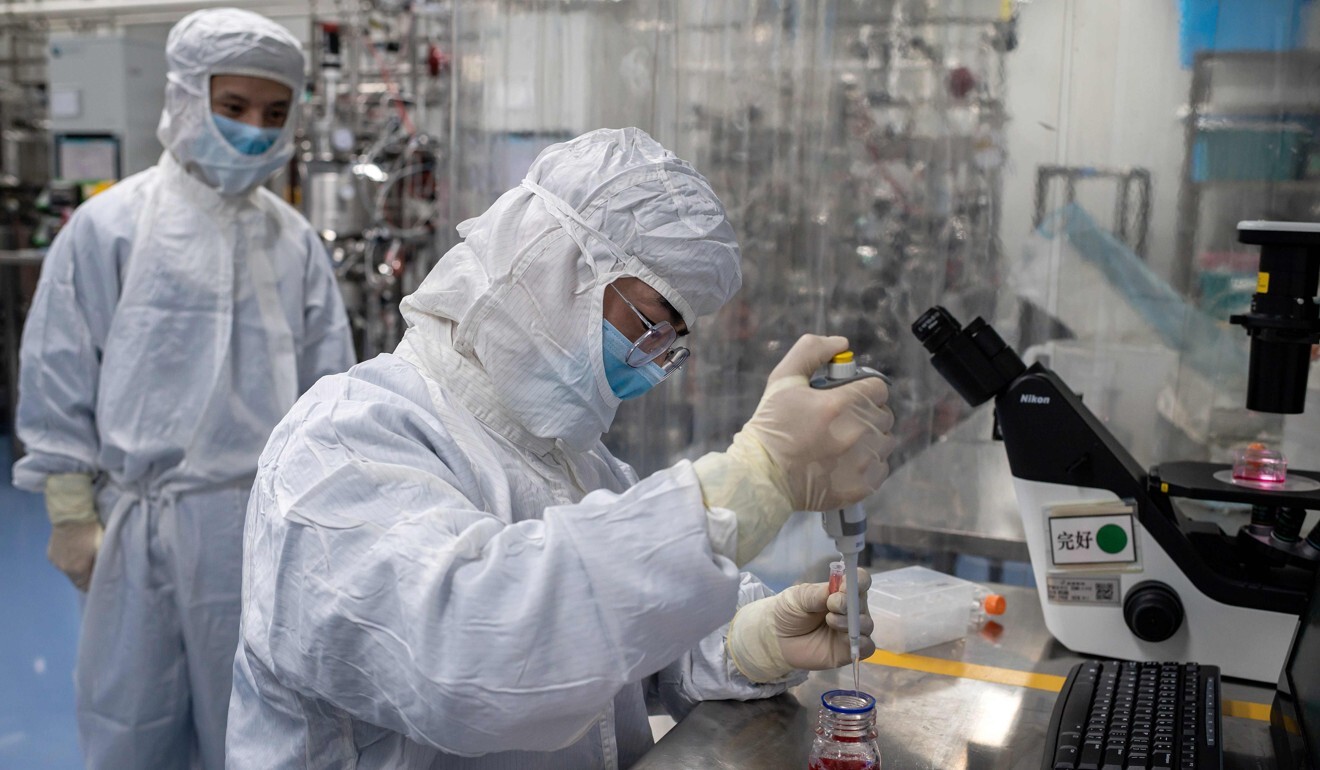
Coronavirus trumps poor US-China relations as scientific collaboration spikes, study shows
- Since the start of the Covid-19 pandemic, American and Chinese teams have increased their cooperation on related research, paper says
- Scientific collaboration between the two countries has seen ‘explosive growth’ in recent years and scientists have ‘doubled down’ since start of global health crisis, co-author says

Despite the poor state of relations between China and the United States, the Covid-19 pandemic has led to an increase in cooperation between scientists from the two countries, according to a new study.
A team from the US and Australia looked at 10,000 papers involving coronavirus research published between the start of 2018 and April 2020. In the two years through 2019, 3.6 per cent of them involved collaboration between Chinese and American scientists, but in the first four months of this year, that figure rose to 4.9 per cent.
The findings were published on Tuesday in the open-access scientific journal PLOS One.
The results come as research projects in the US involving Chinese partners or funding are facing tighter scrutiny and Washington has been making it more difficult for Chinese researchers and students to get visas to enter the US.

Caroline Wagner, an associate professor of international affairs at Ohio State University, said collaboration between China and the US had seen explosive growth in the past few decades.
China was now America’s largest international partner on scientific research and the trend had continued during the Covid-19 pandemic, she said.
“What we found is that the US-China collaboration kind of doubled down. They actually increased their work together. They’re working more together than they were before.”
Wagner said she was not too concerned about the possible impact of the political tensions between the two countries as the scientific community operated at a different level to politics.
“The political tensions go on … but the scientific culture is very much focused on facts and prestige,” she said.
A separate study, by Professor Jenny Lee and John Haupt from the University of Arizona College of Education, also found a strong link between Chinese and US scientists on coronavirus research.
They looked at close to 5,000 papers related to Covid-19 and found that Chinese scientists were the most prolific producers, and that they collaborated with their US peers 2.7 times more than they did with British scientists, their second-most popular partners.
The results of the study have not been peer-reviewed.
“Given the increasing geopolitical tensions between the US and China, especially since the onset of Covid-19 … [we] had anticipated some decline in US-China collaborations,” Lee said.
“We were pleased to find the opposite. Right now, US and Chinese scientists are exercising agency in where and with whom they publish,” she said.
“While we do not know how much more research would have been published if countries were on friendlier terms, science, it seems for now, does not have to follow political agendas.”
However, Gregory Gray, a professor of infectious diseases at Duke University in the US, said that although his institution’s collaborations had not been affected, he was concerned the conflict between Washington and Beijing could be damaging.
Since 2015, Gray has taught global health at Duke Kunshan University in east China’s Jiangsu province – a joint venture between Duke University and Wuhan University. He has also co-authored about 40 papers with Chinese researchers.
“Duke Kunshan University and other US academic institutions in China are wonderful places for young people of multiple nations, particularly China and the USA, to learn to work together on the world’s problems. I am concerned that … will be harmed,” he said.
“There is both a great benefit and a huge need to perform USA-China research collaborations as infectious agents are apolitical and respect no borders.”